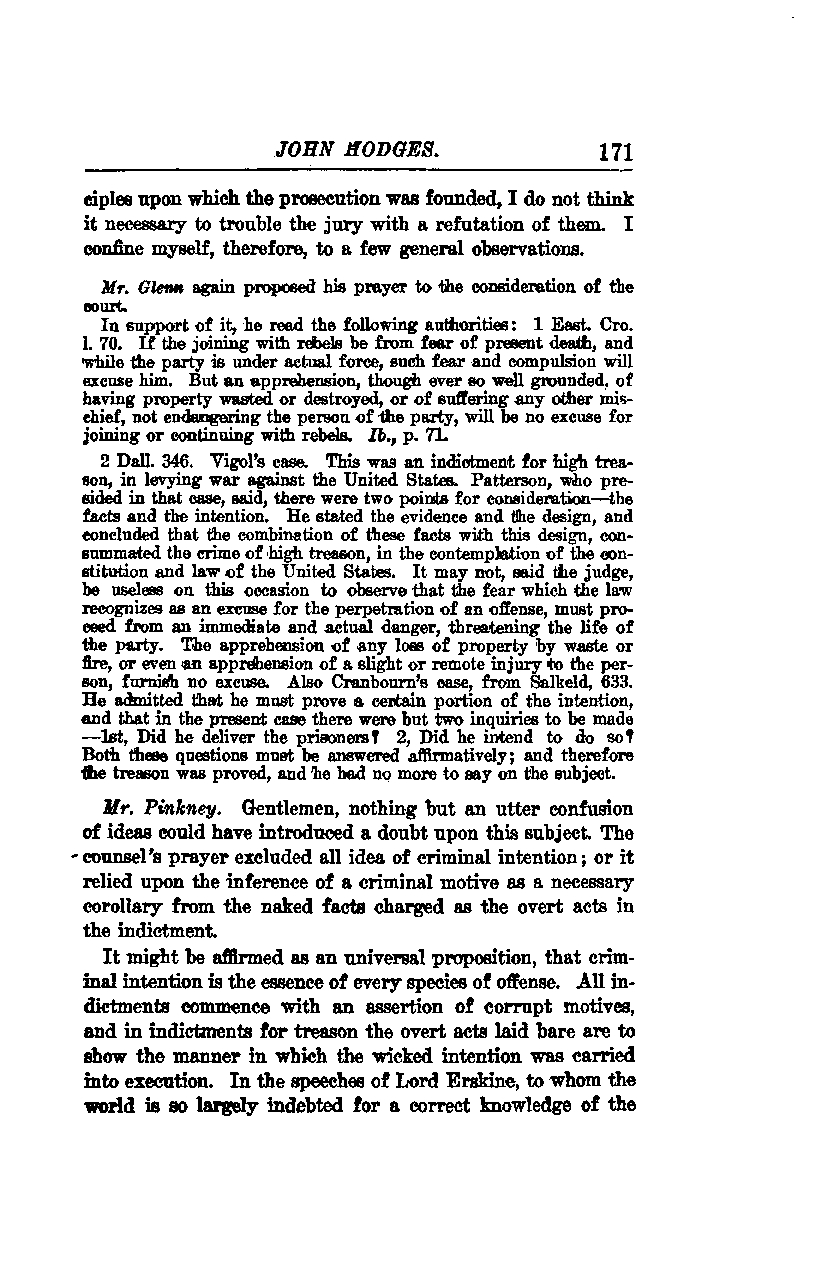
Here is the translated text as follows:
JOHN HODGES. 171
Given the principles upon which the prosecution was founded, I do not think it necessary to trouble the jury with a refutation of them. I will confine myself, therefore, to a few general observations.
Mr. Glenn again proposed his prayer for the consideration of the court.
In support of it, he read the following authorities: 1 East. Cro. 170. If the joining with rebels is from fear of present death, and while the party is under actual force, such fear and compulsion will excuse him. However, an apprehension, though ever so well grounded, of having property wasted or destroyed, or of suffering any other mischief not endangering the person of the party, will be no excuse for joining or continuing with rebels. Ib., p. 71.
2 Dall. 346. Vigol’s case. This was an indictment for high treason, in levying war against the United States. Patterson, who presided in that case, said there were two points for consideration—the facts and the intention. He stated the evidence and the design, and concluded that the combination of these facts with this design consummated the crime of high treason, in the contemplation of the constitution and law of the United States. It may not, said the judge, be useless on this occasion to observe that the fear which the law recognizes as an excuse for the perpetration of an offense must proceed from an immediate and actual danger, threatening the life of the party. The apprehension of any loss of property by waste or fire, or even an apprehension of a slight or remote injury to the person, furnishes no excuse. Also, Cranbourn’s case, from Salkeld, 633. He admitted that he must prove a certain portion of the intention, and that in the present case there were but two inquiries to be made—1st, Did he deliver the prisoners? 2nd, Did he intend to do so? Both these questions must be answered affirmatively; and therefore, the treason was proved, and he had no more to say on the subject.
Mr. Pinkney: Gentlemen, nothing but an utter confusion of ideas could have introduced a doubt upon this subject. The counsel’s prayer excluded all idea of criminal intention, or it relied upon the inference of a criminal motive as a necessary corollary from the naked facts charged as the overt acts in the indictment.
It might be affirmed as a universal proposition that criminal intention is the essence of every species of offense. All indictments commence with an assertion of corrupt motives, and in indictments for treason, the overt acts laid bare are to show the manner in which the wicked intention was carried into execution. In the speeches of Lord Erskine, to whom the world is so largely indebted for a correct knowledge of the law, this principle is clearly enunciated.